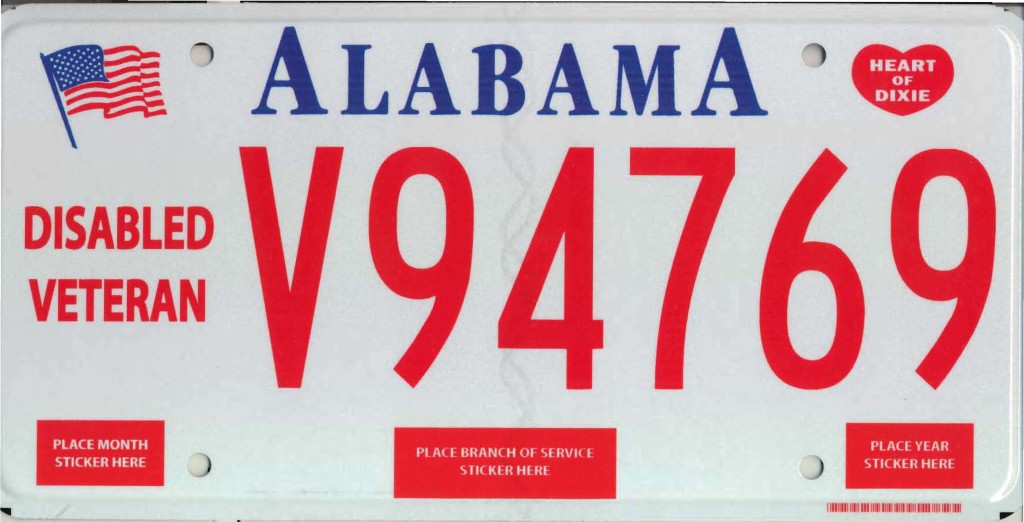2018: Year of the Woman in Alabama politics, primary update

If there ever was a “Year of the Woman” in Alabama, it’s 2018. Following the national trend, more Alabama women are stepping up to run for political office as a major party candidate than ever before, according to the Center for American Women and Politics at Rutgers University. But how did the female candidates fare in the June 5 primaries? Below is a list of women who prevailed in their races. Statewide Executive Office Currently only two women serve in statewide elected executive positions — Gov. Kay Ivey and Alabama Public Service Commission President Twinkle Andress Cavanaugh. But after last night’s election results, those numbers could change in November. Governor Gov. Kay Ivey (Republican candidate) triumphed over her three male opponents, and will face Walt Maddox in November’s general election. Lt. Governor Twinkle Andress Cavanaugh (Republican candidate) will face Will Ainsworth in a runoff election, July 17. Secretary of State Heather Milam (Democratic candidate) won her primary election, and will face John Merrill in the November general election. Alabama Court of Civil Appeals Christy Olinger Edwards (Place 1, Republican candidate) won her spot over Michelle Manley Thomason, another female republican candidate. U.S. Congress Currently only two women represent the Yellowhammer State in the United States Congress — 2nd District U.S. Rep. Martha Roby and 7th District U.S. Rep. Terri Sewell. Five other women ran for office in U.S. house races. Alabama 2nd District in the U.S. House of Representatives Rep. Martha Roby (incumbent, Republican candidate) was forced into a runoff set for July 17 with former Rep. Bobby Bright. Tabitha Isner (Democratic candidate) won the democratic primary for the 2nd district and will face either Roby or Bright in November. Alabama 3rd District in the U.S. House of Representatives Mallory Hagan (Democratic candidate) won the democratic primary for the 3rd district and will face incumbent Mike Rogers in the November general election. Alabama 7th District in the U.S. House of Representatives Rep. Terri Sewell (incumbent, Democratic candidate) was the only candidate in her race. State Legislature Amy Wasyluka (Democratic candidate) won the State Senate District 2 race Deidra Willis (Democratic candidate) won the State Senate, District 7 race Vivian Davis Figures (Democratic candidate) won the State Senate, District 33 race Laura Hall (Democratic candidate) won the State House District 19 race Barbara Bigsby Boyd (Democratic candididate) won the State House District 32 race Debbie Hamby Wood (Republican candidate) won the State House District 38 race April Weaver (Republican candidate) won the State House District 49 race Louise “Lulu” Alexander (Democratic candidate) won the State House District 56 race Rolanda Hollis (Democratic candidate) won the State House District 58 race Mary Moore (Democratic cadet) won the State House District 59 race Juandalynn Givan (Democratic candidate) won the State House District 60 race Elaine Beech (Democratic candidate) won the State House District 65 race Pebblin Walker Warren (Democratic candidate) won the State House District 82 race Pat “Patsy” Jones (Democratic candidate) won the State House District 83 race Adline C. Clarke (Democratic candidate) won the State House District 97 race
Here’s everyone the NRA has endorsed in the 2018 election cycle

An endorsement from the NRA‘s Political Action Committee, the NRA Political Victory Fund (NRA-PVF), can be a game changer for many candidates. “When provided with the facts, the nation’s elected officials will recognize that “gun control” schemes are an infringement on the Second Amendment and a proven failure in fighting crime” says the fund. “The importance of this premise lies in the knowledge that, as one U.S. Congressman put it: ‘The gun lobby is people.’” The NRA-PVF makes its decisions based on voting records, public statements and their responses to their NRA-PVF questionnaire. Here are the candidates who the NRA has endorsed, who they believe will stand up for Alabamian’s Second Amendment rights: Statewide races Governor: Kay Ivey Attorney General: Steve Marshall Agricultural Commissioner: Gerald Dial State Senate Races District 4: Paul Bussman District 6: Larry Stutts District 8: Steve Livingston District 10: Mack N. Butler District 12: Del Marsh District 21: Gerald H. Allen District 22: Tom Butler State House Races District 10: Mike Ball District 12: Corey Harbison District 14: Tim Wadsworth District 16: Kyle South District 22: Ritchie Whorton District 23: Tommy Hanes District 31: Mike Holmes District 33: Ronald G. Johnson District 45: Dickie Drake District 48: Jim Carns District 49: April Weaver District 65: Elaine Beech District 88: Jeremy Arthur District 105: Chip Brown
Push for greater equality: Adline Clarke proposes ‘gender pay gap’ bill

It’s a fact: women earn less than men. According to the U.S. Department of Labor, women who worked full-time, year-round in 2014 earned on average, 79% of men’s median annual earnings. That’s not sitting well with one Alabama lawmaker who’s hoping her gender pay gap legislation makes it across the finish line as the 2018 legislative session nears its close. HB368, sponsored by Mobile-Democrat State Rep. Adline Clarke, would prohibit employers from paying their employees less than the wage they would pay a member of the opposite sex for a similar job or responsibilities when viewed as a composite of skill, effort, and responsibility, as specified. Alabama is one of only two states, along with Mississippi, without an equal pay law. “Nearly every state has a law prohibiting employers differently based solely on gender. I’m disappointed. I would have thought we would have passed a long long before now,” Clarke told AL.com “Timing is everything.” However, HB368, also known as the “Gender Pay Gap,” would not just make wage inequality illegal, but would also add several provisions to the law including: Requires an employer to affirmatively demonstrate that a wage differential is based upon one or more specified factors Prohibits an employer from discharging, or in any manner discriminating against. or retaliating against an employee for the enforcement of these provisions Provides for enforcement of the bill Provides that an employer may not prohibit an employee from disclosing the employee’s own wages, discussing the wages of others, inquiring about another employee’s wages, or aiding or encouraging any other employee to exercise his or her rights under these provisions And requires an employer to maintain a record of wages paid to his 15 or her employee for a certain amount of time. The proposal, filed on Feb. 1, is scheduled to appear before the Alabama House State Government Committee on March 21. Alexander City-Republican State Rep. Mark Tuggle, the committee’s chairman, hopes to have Clarke’s proposal on the committee agenda next week. The bill currently has 26 co-sponsors, both Republicans and Democrats: Autauga County-Democrat Kelvin Lawrence Mobile County-Democrat Barbara Drummond Barbour County-Democrat Barry Forte Perry County-Democrat Prince Chestnut Jefferson County-Democrat Rolanda Hollis Madison County-Democrat Anthony Daniels Jefferson County-Democrat Rod Scott Tallapoosa County-Democrat Pebblin Warren Choctaw County-Democrat Elaine Beech Madison County-Democrat Laura Hall Jefferson County-Democrat Merika Coleman Jefferson County-Democrat Mary Moore Mobile County-Democrat Napolean Bracy Blount County-Republican Connie Rowe Shelby County-Republican April Weaver Talladega County-Democrat Barbara Boyd Jefferson County-Democrat Juandalynn Givan Etowah County-Republican Becky Nordgren Morgan County-Republican Terri Collins Montgomery County-Democrat John F. Knight Montgomery County-Democrat Thad McClammy Tuscaloosa County-Democrat Artis McCampbell Mobile County-Democrat James Buskey Bibb County-Democrat Ralph Howard Lauderdale County-Democrat Marcel Black Houston County-Democrat Dexter Grimsley
House Committee gives thumbs up to bills on license restrictions, renewals

The Alabama House Committee on Public Safety and Homeland Security met Wednesday morning to discuss several bills and, in a move uncommon in most committee meetings, debate was minimal and support widespread. The first agenda item was HB 94, a bill sponsored by Rep. Alan Baker (R-Brewton) to provide disabled veterans with discounts on license plates, even if that license plate is not a disabled veterans plate. The inspiration for Baker’s bill came from an email he received from a disabled veteran who was afraid of being targeted due to his disabled veteran plate – targeted by terrorists for being a vet and targeted by criminals for being disabled – who urged his representative to make it possible for vets to receive subsidies for all license plates. The only form of dissent from the bill came from Rep. Mary Moore (D-Birmingham) who noted that she has felt targeted every day of her life, recalling times when she had a shotgun pointed at her head and times she was beaten by a white man for using the wrong water fountain. “Whether it’s real or perceived, I would want them to feel safe and secure,” Baker said before a vote was taken and the bill given a favorable report. A bill from Rep. Elaine Beech (D-Chatom), HB 1, would allow law enforcement officers to issue traffic citations at the scene of an accident. Current law provides that if a person is transported to the hospital, an officer can not follow them there to issue an arrest. Beech’s bill would change that. Rep. Chris England (D-Tuscaloosa) opposed the measure on mostly technical grounds, noting that clarity needed to be made in certain language used in the bill, specifically in relation to how officers would determine who was at fault in an accident and how long they had to press charges against an offender. The committee voted to carry the bill over until next week’s meeting. HB 11, which would allow Alabamians to renew their driver’s licenses up to six months before the expiration date, received a green light from the committee, as well as HB 22 from Rep. Mike Holmes (R-Wetumpka) to strengthen penalties for youthful drivers and their parents if a violation of the graduated driver’s license regulations is committed. Holmes brought the bill last year in response to the death of three Wetumpka High School teens and a deputy in an auto collision. Under the graduated driver’s license regulations, the teens should not have been allowed to be in a car together. Multiple committee members, both Republican and Democrat, applauded Holmes for bringing the bill forward sand making efforts to “protect our young people.”


